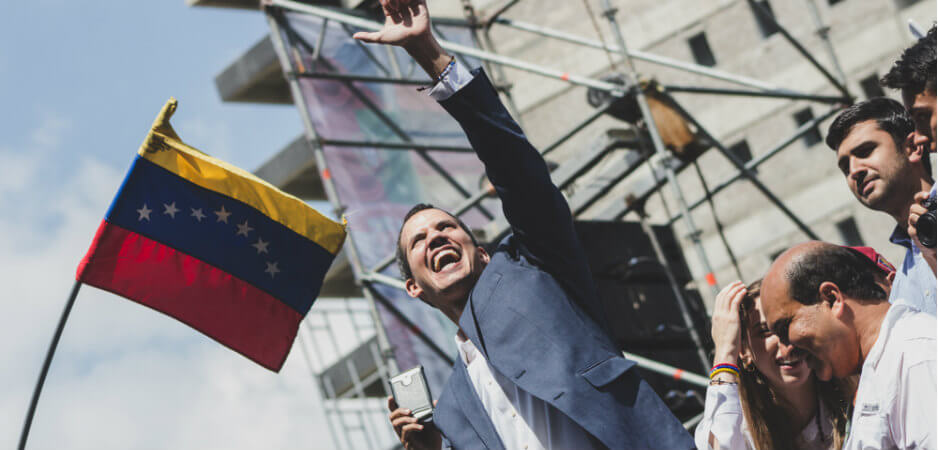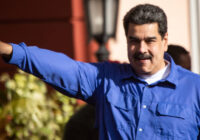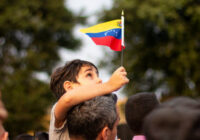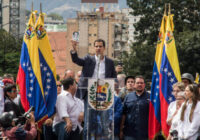After a few years preaching in the wilderness, Venezuela’s democratic forces found a new energy with Juan Guaidó.
Until January this year, Nicolás Maduro, Venezuela’s strongman, seemed to have overcome all the obstacles in his battle for political survival. Appointed by Hugo Chávez — the founder of 21st-century socialism in Latin America and well known for his inexhaustible charisma — Maduro had to fight on several fronts at the same time.
First, he had to establish his authority within the Chavista ranks. Second, he had to preserve all the political capital inherited from the Chavez years, which included a lengthy consumption boom resulting from high oil prices and a decade of high levels of investment in health care, subsidized food and low-cost housing. Finally, he had to curb the growing challenge of an emboldened opposition that envisioned an easier track once its main rival was out of the picture.
No matter if he was by many counts a mediocre leader, Maduro proved himself masterful during the infighting that came about in the aftermath of Chávez’s death in 2013. Within a few years, Maduro had defeated Rafael Ramirez, the head of the oil industry and cousin of Carlos the Jackal (the infamous terrorist active in the 1970s and 1980s); crushed the civilian ministers of the classic left whose main leverage was their intellect and honesty, no matter how distorted their policies; and neutralized Diosdado Cabello, second in command and member of the military conspirators who staged the 1992 coup that brought Chávez into the limelight.
But Maduro was not able to maintain the political capital passed on from Chávez because he also inherited a time bomb. In the run-up years to the 2012 presidential election, the effort was so intense that the economic model based on high oil prices that Chávez had concocted — including extreme levels of external financing and internal debt — depleted the economy, breaking the typical mechanisms of an oil-based economy to avoid both high inflation and unemployment.
Within a couple of years what seemed an oddity — an oil country plunging into hyperinflation — became unstoppable. In 2013, only weeks after defeating the opposition by a minimum (and highly contested) margin, Maduro rejected a stabilization plan proposed by Ramirez, who was dismissed and sent to New York as a representative to the UN. After that, all attempts at producing economic change were marked by insisting on the rigid model that had already failed.
Humanitarian Crisis
From then on, Venezuela was in free fall. Unable to reign in government expenditure and experiencing a lack of foreign exchange earnings, especially as oil prices began to drop in the midst of heavy debt payments to hungry creditors, the only way to tamper the use of hard currency was to control imports. The result was the immediate shortage of food and medicines, which could not be produced domestically due to a systematic destruction of private production (both agriculture and industry) under Chávez.
The latter had been the result of an orgy of nationalizations following the socialist dream of prioritizing state production. What ensued was the gravest crisis of access to essential goods in the country’s memory. After 2016, the shortages led to what amounted to a humanitarian crisis: Venezuelans lost an average of 11 kilos (24 pounds) in weight, and old and new diseases loomed large. Even malaria, eradicated in 1961, became pervasive. Soon, this translated into a migration crisis, with vast numbers of Venezuelans leaving the country in desperation, often walking to places like Ecuador and Peru. The UN Refugee Agency estimates the number of recent migrants at around 3 million, with an accumulated number of around 4 million in the last decade.
At this point, in order to grant control over a country running into chaos, Maduro turned to the military. For years, the army had followed — in Hugo Chávez, a career military officer — one of their own, even later allowing the strong involvement of the Cubans in Venezuelan affairs, especially during Chávez’s battle with cancer. Now, with the country on the brink of collapse, the military became the key player, accumulating more and more internal power within the cabinet and running state companies.
In the end, even the crown jewel, the state-controlled oil and gas company, PDVSA, was given to the military to run, making the composition of the regime more of a military-civilian alliance than its early civilian-military duo under Chávez. Worse still, this close-knit alliance became a bedrock of corruption as the military and some factions within the Chavista leadership had been using (and abusing) all means possible to extract personal and corporate benefits. Working in cahoots with newly-created financial groups that took advantage of the huge distortions of a quasi-closed system, those in power created conditions in which the economy could not function.
Even narcotics trafficking began to show its teeth in the workings of the state, as Venezuela became one of the main routes of cocaine from Colombia on the way to Europe and even (partially) Mexico. The Chavismo establishment was so involved in the trafficking that even two “narconephews” of the first lady, Cilia Flores, were sentenced in 2017 by a New York court for attempting to bring cocaine to the US.
Outmaneuvering the Opposition
Another aspect in which Maduro outperformed all expectations was in his instinct to handle the challenge from the democratic opposition, with a little help from his Cuban friends. Using all the state resources to trick or cheat the opposition, especially when it came to the handling of votes, he continued to win elections — until he didn’t. By 2015, the impact of the economic crisis was so vast that important portions of the electorate that had either supported Chávez for his policies or simply adored him for what he was — a commoner and soldier who cared for his people — began switching sides.
In the end, what the Chavista leadership dreaded more came true. In December 2015, after the entire state apparatus was put to the service of Maduro’s victory, the sum of all opposition forces, organized around the Democratic Unity coalition (MUD), won a two-thirds supermajority in the national assembly.
At this point the regime’s effort to undermine whatever was left of a former democracy went into overdrive. Not only was the victory downplayed, but as 2016 advanced, Maduro and his tightly controlled supreme tribunal of justice began annulling the national assembly’s powers in all domains: to advance legislation, to sanction the national budget, to supervise the executive branch and even denying payments to legislators.
In practice, the country now has two presidents: One, Guaidó, has constitutional legitimacy; the other, Maduro, has the guns.
When the opposition forces attempted to summon a recall referendum to unseat the president by following constitutional provisions, the electoral council sabotaged all the milestones for the mechanisms leading to the election. It was finally abandoned, along with the gubernatorial elections due at the end of that year. They also promoted, with the support of the Vatican, an attempt at dialogue that fell flat, producing a demobilization of the opposition in the streets.
In 2017, Maduro and his allies went a step further in their violation of the constitution. In the first term of that year, they called an election to the constituent assembly that violated the essential one-man, one-vote principle of democracy by “reserving” candidates to be voted in by specific social groups — workers, peasants, members of communal councils — more favorable to the current regime. Naturally, the opposition abstained, which in the end consecrated the almost total annulment of the national assembly, now with a handy substitute providing the semblance of a legitimate power. The following year, the same arbitrary use of the electoral calendar led to unexpected calls for elections for both governors and for re-electing Maduro.
In the end, Maduro secured the main precondition for his survival: the division of the opposition into several groups consumed by suicidal infighting regarding who bore the responsibility for their defeat. By December 2018, the coalition that in 2015 had become a formidable adversary was in shambles, with all the main leaders diminished and even hated by the vast majority of the country.
International Community Abandons the Regime
The only realm where the opposition scored important advances was with its international strategy. Slowly but steadily, many of the leaders who either left the country as exiles, remained under house arrest or were simply stripped of their political rights had advanced a campaign to isolate Maduro’s regime in Latin America — the so-called leftist pink tide bringing about a leadership close to Chávez had receded. In Europe, too, governments began to admit the obvious. Countries like Spain and France that have a long-standing relationship with Venezuela started to distance themselves from Maduro and began openly criticizing him and his regime. Not only was the world facing a nation known for its arbitrary relationship with human rights and civil liberties, but one that had thrown all democratic rules into the dustbin as it turned into a cesspool of corruption.
The focus of the strategy was well grounded in real facts: to declare the 2018 presidential election as illegitimate due to the fact that most opposition parties (including MUD) and the better positioned candidates were barred from running, as well the manipulation of the registry and public harassment of voters. What to the naked eye seemed only a standard diplomatic move was in fact a time bomb. A long list of European and Latin American countries failed to accept Maduro’s election as legitimate.
Also, the change of power in the United States in 2016 made an important difference. At the end of the Obama administration, there had been timid attempts at producing pressure through limited sanctions against selected Venezuelan officials for corruption. But the Trump administration accelerated the pace, expanding the sanctions to perpetrators of human rights abuses and including financial penalties, denying both the Venezuelan government and PDVSA the use of the dollar and US territory for ordinary transactions. The already embattled and financially strained Venezuelan economy began feeling the pinch in having room to maneuver in the financial world.
In its change of strategy, the Trump administration showed its teeth, even hinting at the possibility of military intervention. While this path found a marginal echo in the opposition’s quarters and a resounding negative within Latin America as a whole, it was true to US President Donald Trump’s negotiating style: using a rhetorical menace to force his Venezuelan military adversary to retreat. It also elicited the outright rejection from the American and European left and even from liberal quarters in both regions.
A Brilliant Strategy, a New Leader
Come January 2019. Against all odds, the appointment of a new president of the national assembly by simply following protocol — electing a member of a different party of the opposition coalition each year — brought about commotion. Having the national assembly deny Maduro legitimacy, Juan Guaidó — an obscure legislator with the Popular Will party and the new president of the national assembly — became automatically a possible interim head of state according to the Article 233 of the Bolivarian constitution, provided that congress supported the measure.
What was intended as a chess move to force the regime into greater isolation produced a miracle. Suddenly, the 35-year-old congressman struck a chord with the country and the world at large, becoming first a fresh voice against a chorus of discredited leaders, later a novelty and, finally, a hurricane and a rock star. After a few years preaching in the wilderness, Venezuela’s democratic forces found a new energy with Juan Guaidó.
The situation in Venezuela has dramatically changed, with the opposition regaining its offensive footing, cornering Maduro both internally and internationally. Most Latin American countries, the Organization of American States (OAS), the US, the European Parliament and even the Socialist International have recognized Guaidó as Venezuela’s legitimate president. Furthermore, in practice, the country now has two presidents: Guaidó has constitutional legitimacy, but Maduro has the guns.
The bulk of the military high commanders still support Maduro. But gradually Guaidó has gained increasing support among the middle ranks and even among some generals. His greater advantage, though, derives from a change in the correlation of forces, both nationally and internationally. First, he can bring millions of supporters to the streets in the entire country. Second, he had been granted international support. Third, Guaidó might acquire financial means through access to PDVSA and its US subsidiary, Citgo, in case Maduro loses his legal challenge against US sanctions raised at the World Trade Organization. Fourth, appointing representatives to strategic places like the OAS, the Venezuelan Embassy in Washington, the Lima Group, Argentina, and eventually Brazil and the European Union strengthens the position of the self-appointed interim president. Finally, Guiadó still enjoys a relatively free hand in his actions as political leader with so far only marginal harassment from what is a very repressive regime.
What Comes Next?
It is difficult to predict any outcome out of the new situation. Apparently we are facing a transition out of the Maduro era. Interestingly, it does not follow other classic transitions to democracy in recent times, most of which have been defined either by an election or military takeover. What we are facing is an odd situation of a parallel power where the interim president counts with both legal arguments and a vast support from the majority of Venezuelans. At the same time, this source of power — still weak — has strong international support and, more importantly, the clear decision of the United States to move forward until change is achieved.
Russia pledged full support for Maduro’s embattled regime. But now Kremlin sources say he may not survive the crisis pic.twitter.com/2gUmOczH6R
— TicToc by Bloomberg (@tictoc) February 6, 2019
The next rounds will be played in several realms. One is the quest for humanitarian aid, supported by the US and several European countries, and counting on logistical support from Colombia and Brazil. Maduro will probably stop any attempt to bring medicine and food, despite clear signs that a long list of hospitals and primary care units are in desperate need for the former, and those weaker parts of the population like children and the elderly are in dramatic need for the latter.
The second round will be played in the oil and financial world. PDVSA is already having trouble cashing in on the exported oil due to its inability to make any transactions under the Maduro administration as a result of earlier sanctions. But now it is also curbed in its capacity to sell heavy oil to US refineries and reap the benefits. The regime is desperately seeking new markets for its heavy oil, and it is unclear if countries that use it, like India, will be able or willing to circumvent potential US sanctions. In addition, a gasoline crunch is around the corner, worsening what already was a problem in 2018.
These pressures on the regime will force both internal and international reactions. Internally, the military will have the final say because in the face of the government’s current isolation, and so far it has stood relatively solid in its support for Maduro. But this could change.
Up until now the cracks have been minor. Weary of the Salvador Allende experience in 1973 and of the coup against him in 2002, Chávez, with the help of the Cubans, reorganized the whole of the armed forces. The end result was that the control of a few garrisons by loyalists would grant the government the upper hand in the event of a coup. But the last two years have been full of unrest within the different branches, leading to the imprisonment of over 100 officers since the start of protests in April 2017. It is unclear how the military will react now that the shadow of a US intervention has become a possibility. Most experts anticipate that in most probability there will be no fracture within the armed forces. Instead, they will act as a whole in one — or the other — direction.
There are different options. The military might follow the Egyptian hypothesis, namely becoming neutral in the clash between the two civilian poles. Another is that it will support Maduro to the end, which does not seem very likely, unless it is willing to pay the costs for a long time to come.
The likelihood of switching sides and supporting Guaidó as a bloc is very low. Finally, it might be tempted to create a new alternative, different from either side — a bipartisan coalition of some sort (with Maduro out of the picture), which could garner some international support from Mexico, Uruguay and even some European countries weary of a civil war. In any event, the possibility of Maduro remaining in power on his current terms is slim. One way or another, it would seem that Maduro’s time is coming to an end.
The views expressed in this article are the author’s own and do not necessarily reflect Fair Observer’s editorial policy.
Support Fair Observer
We rely on your support for our independence, diversity and quality.
For more than 10 years, Fair Observer has been free, fair and independent. No billionaire owns us, no advertisers control us. We are a reader-supported nonprofit. Unlike many other publications, we keep our content free for readers regardless of where they live or whether they can afford to pay. We have no paywalls and no ads.
In the post-truth era of fake news, echo chambers and filter bubbles, we publish a plurality of perspectives from around the world. Anyone can publish with us, but everyone goes through a rigorous editorial process. So, you get fact-checked, well-reasoned content instead of noise.
We publish 2,500+ voices from 90+ countries. We also conduct education and training programs
on subjects ranging from digital media and journalism to writing and critical thinking. This
doesn’t come cheap. Servers, editors, trainers and web developers cost
money.
Please consider supporting us on a regular basis as a recurring donor or a
sustaining member.
Will you support FO’s journalism?
We rely on your support for our independence, diversity and quality.







